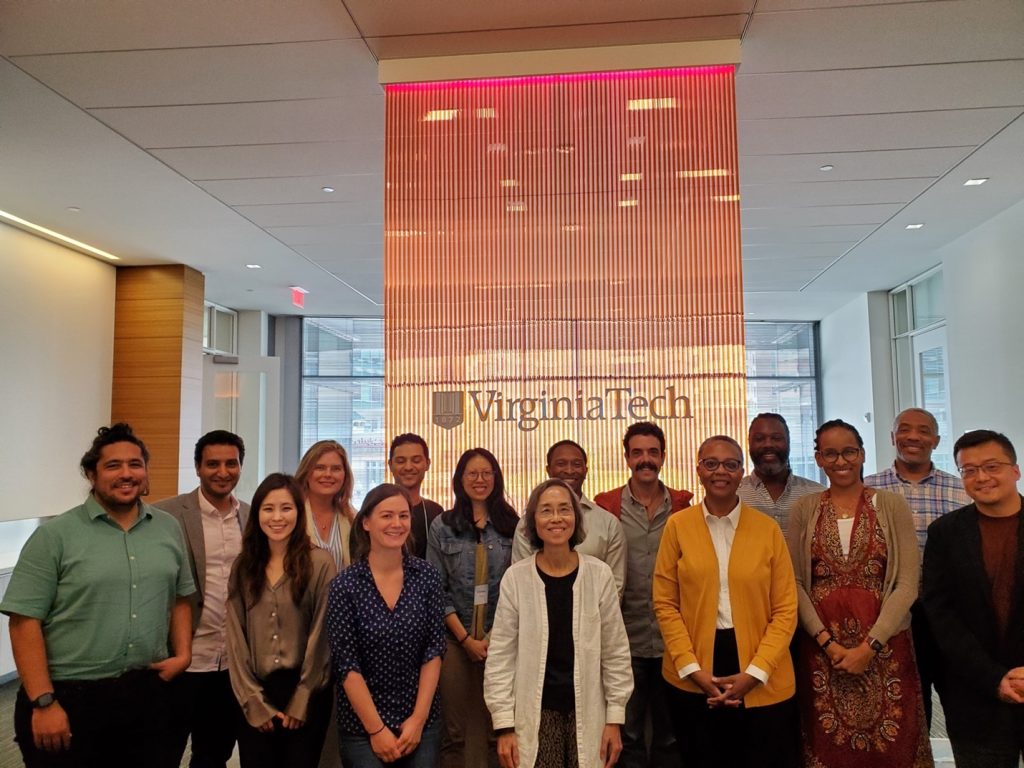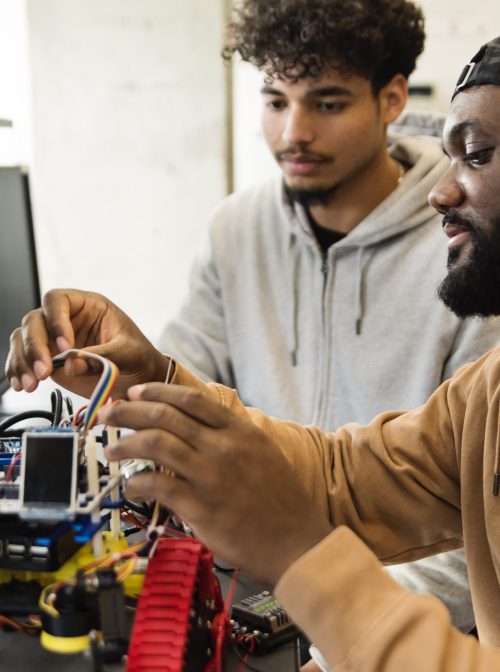Technological advancements, particularly in artificial intelligence and biotechnology, are introducing complex ethical questions concerning privacy, bias, human dignity, genetic engineering, and end-of-life care. As we navigate these modern and future uncertainties, an approach comprehensively incorporating both technological and societal dimensions is indispensable.
In June 2023, I had the honor to participate in a “Tech for Humanity 2023” summit co-hosted by Virginia Tech and New America. This summit assembled diverse experts from religion, theology, philosophy, technology, and more, collectively envisioning strategies for creating socially just and inclusive methodologies in technology development. The event provided an ideal platform for meaningful discussions, and the establishment of research agendas centered around the ethical challenges integral to technological innovation.
The esteemed Dr. Sylvester A. Johnson of Virginia Tech led the initiative. He was part of a larger research project titled “Future Humans, Human Futures: Religion and Technology in a Posthuman Age“. Supported generously by the Henry Luce Foundation, this project sought to facilitate dialogues between scholars of religion and an eclectic array of technology experts, aiming to reshape our perception of technology from a set of technical challenges to a realm encompassing societal innovation and humanistic considerations. With a global network of scholars, the project aimed to provide research-driven insights into a multitude of facets of the human condition, engaging scholars from diverse religions, including those of Orisa devotion such as Vodun, Yoruba, and Candomblé; Native American religions; Buddhism, Hinduism, Christianity, Islam, and Judaism, in conversation with tech experts from around the world.

Reflecting on this enriching event and the broader project, I want to underscore the symbiotic relationship between interfaith dialogue and the STEM fields, which can indeed yield mutual benefits.
Like STEM, interfaith dialogue flourishes on diverse perspectives, nurturing a comprehensive understanding of scientific issues and enhancing creativity and innovation. Interfaith dialogue also introduces ethical considerations such as compassion, justice, and environmental stewardship, often overlooked in STEM fields. Thus, interfaith perspectives can serve as a moral compass, guiding scientific advancements and providing ethical frameworks for responsible scientific and technological practices, including climate change, addressing the digital divide, and promoting technical access for marginalized communities.
Like STEM, interfaith dialogue flourishes on diverse perspectives.
Religious traditions frequently emphasize environmental stewardship, aligning well with STEM’s current focus on environmental science and sustainability. Interfaith collaborations can act as catalysts for promoting ecological awareness and fostering sustainable practices. Moreover, these collaborations can mobilize experts to address global challenges such as climate change and healthcare access across religious and cultural boundaries.
The convergence of interfaith and STEM holds significant promise in education and outreach. It equips students with vital skills such as empathy, cultural sensitivity, and social responsibility while facilitating the integration of their religious or non-religious identity with their professional roles, cultivating a more inclusive and respectful environment.
Bridging the divide between STEM and non-STEM specialists is essential, fostering a dialogue that considers all stakeholders’ needs and values. In this context, the intersection of interfaith and STEM fields offers enormous potential. Embracing philosophical perspectives from diverse worldviews can guide us toward innovative, ethical, equitable, and socially supportive technologies. By intertwining scientific advancements with philosophical inquiry, we can sculpt a future that harnesses the full potential of technology while safeguarding humanity’s well-being. Pursuing knowledge and responsible technological development will empower us to tackle the challenges and uncertainties ahead with optimism and resilience.
Mohammed Ba-Aoum is a Virginia Tech (VT) Ph.D. candidate in Industrial and Systems Engineering. He founded the Synergy Interfaith Collective and the UN Association at VT. Prior to joining VT, he was a lecturer at King Fahd University and an ARAMCO project engineer. Mohammed has a master’s degree in industrial engineering and a master’s degree in social and cultural pedagogy from Arizona State University (ASU). During his time at ASU, he co-founded Better Together, another interfaith student organization. Mohammed believes that interfaith gives us the ability to recognize our unity while also celebrating our diversity.




